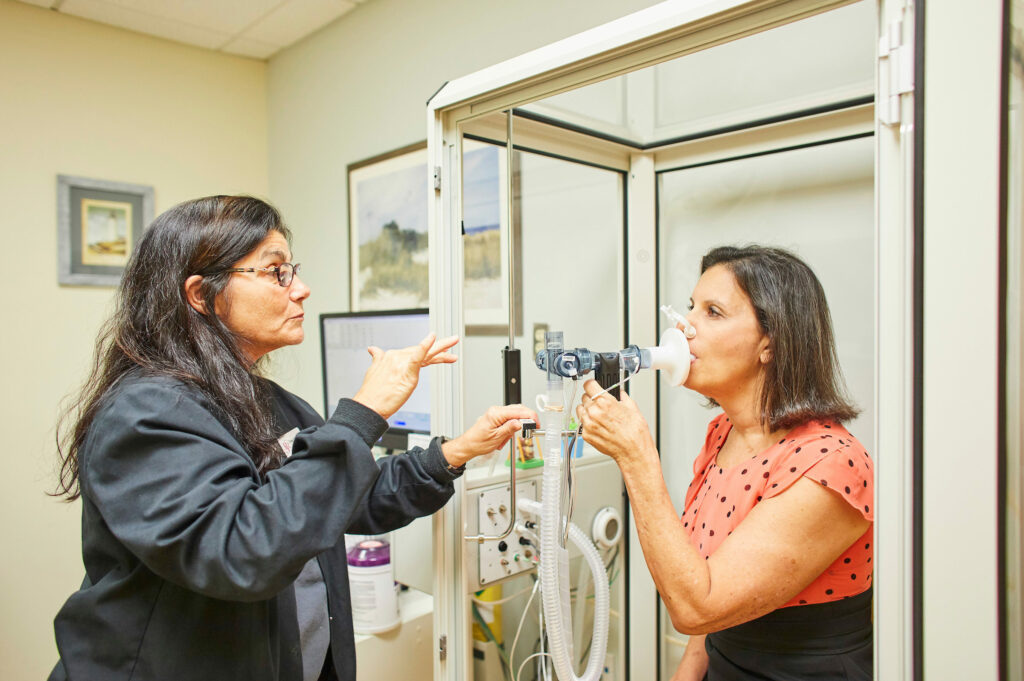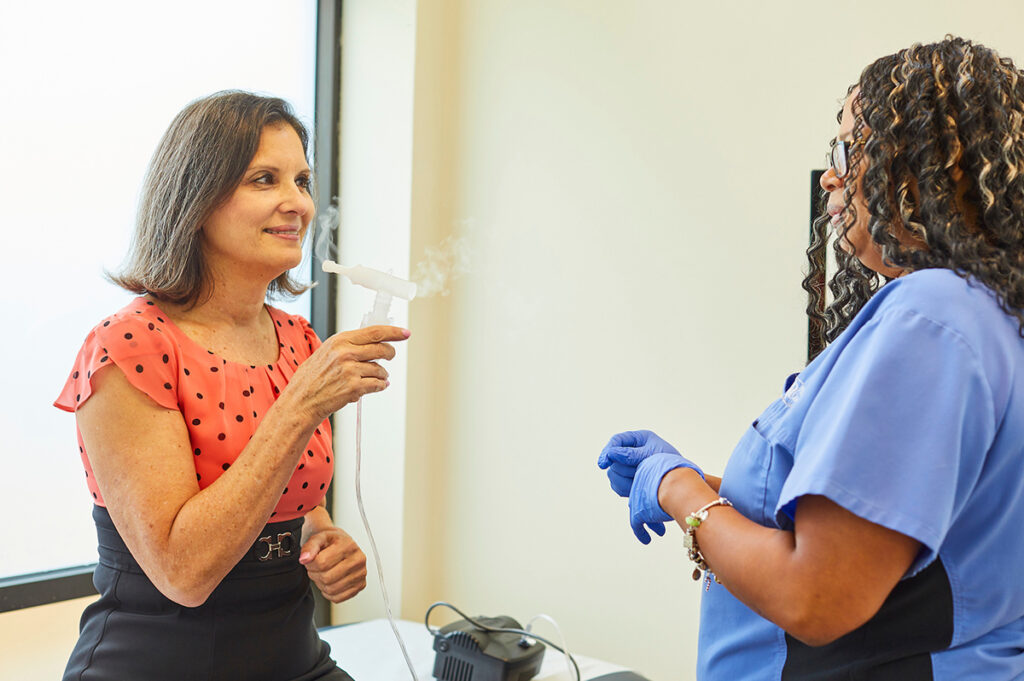PULMONARY FUNCTION TESTS
Pulmonary function tests are non-invasive breathing tests that evaluate how well your lungs and airway function. These tests are used to help diagnose lung conditions such as COPD and asthma. If you have been diagnosed with a chronic lung condition, pulmonary function tests will be performed periodically to ascertain how well your medication is managing your illness.
HOW PULMONARY FUNCTION TESTS HELP
Pulmonary function tests specifically measure:
- How much air your lungs can hold
- How quickly you can move air in and out of your lungs
- How deeply you can breathe
- How well oxygen diffuses in and out of the lungs

How to Prepare for Pulmonary Function Tests
If you are taking certain medications that help open your airway, your doctor may ask you to skip the dose before the tests. To obtain the most accurate assessment of lung function, you should talk to your doctor about all the medications you take, including over-the-counter medications. You should dress comfortably for the tests, as they can take an hour or more. If you smoke, it is recommended that you not smoke an hour before the test.
SPIROMETRY
The spirometry tests measures airflow. It records the amount of air that you are able to breathe out. You will first breathe normally in and out into a mouthpiece that is connected to a spirometer/computer. The person administering the test will then ask you to breathe in and out as deeply and quickly as you can for several seconds. The spirometry tests measures two specific data points:
- The amount of air you can breathe out after inhaling as deeply as you can
- How much air you can exhale in 1 second
These measurements will help you doctor determine how well you are doing if you have a chronic lung condition and if you have any reduced breathing capacity.
PLETHYSMOGRAPHY
A plethysmography test measures the volume of air in your lungs, known as lung volume. You will sit or stand in a small booth and breathe into a mouthpiece. Your lung volume is determined by measuring the pressure in the booth. This test can help your doctor see how well your medication is managing your chronic lung disease. It also helps determine if your lung disease is affecting the amount of space you have in your lungs.
These, along with several other tests, can be performed to give your doctor the information he/she needs to monitor the progression of disease and evaluate the efficacy of your current treatment.


